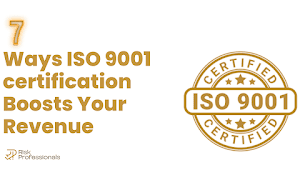Ireland is one of the top choices for many international pharmacy graduates to build a rewarding career. The country offers a strong healthcare system, a global reputation in the pharmaceutical industry, and access to opportunities across Europe, making it a top choice for Indian and other non-EU pharmacists.
But there’s one crucial step before you can practice: completing the Third Country Qualification Recognition (TCQR) process, which includes the PSI Pharmacy Equivalence Exam.
How is the PSI exam important for Overseas pharmacists?
The pharmacy practice in Ireland is regulated by the Pharmaceutical Society of Ireland (PSI). Overseas pharmacists who are trained outside the EU/EEA must prove that their qualifications and skills are equivalent to those of Irish standards. The TCQR process, including exams, ensures that the qualifications and skills of an overseas pharmacist are comparable to those required for providing patient-centric care with safety and high quality.
What are the steps involved in the TCQR Pathway?
1. Eligibility check
Candidates must have:
- They must be a BPharm, MPharm, or PharmD holder from a recognised institution
- Candidates must submit proof of English proficiency with accepted tests, such as IELTS, TOEFL iBT, OET, or CAE.
- Candidates must have proof of Valid registration in their home country with the PCI or the State Council for Indian pharmacists.
2. Stage 1: Qualification verification and recognition
Applicants must apply with:
- Their academic transcripts of qualification, degree certificates from universities, registration proof from pharmacy councils, passport, and professional experience (if any).
- Applicants must also complete the following forms: TCQR1, TCQR2, TCQR3, and TCQR4.
3. Holistic Assessment -stage 2
There will be an external assessor who will verify the documents and give the results. According to the results, applicants will be categorized into two paths. They are:
- Path A: applicants who can directly apply for registration with PSI without any examinations(students from countries like Canada, the USA, the UK, etc.)
- Path B: Applicants from most of the non-EE/EU countries (India, Nepal, Philippines, etc). They must attempt the mandatory PSI Equivalence exam.
4. The PSI Equivalence Examination – Stage 3
- MCQ Test: It is an Online, computer-based test that covers pharmacy, clinical practice, and pharmacy law in Ireland.
- OSCE Exam: It is a Practical, station-based test of clinical decision-making and communication skills.
5. Registration and certification: stage 4
Once the candidates clear the exam, they can apply for registration with PSI.This final registration will help to:
- Work as a licensed pharmacist in community pharmacies, clinics, hospitals, etc
Let’s have a quick recap of this:
The PSI Equivalence examination is mandatory for all non-EE/EU pharmacists
The process included in the PSI pathway is
- Eligibility check
- Application submission
- Holistic assessment
- PSI Equivalence exam
- Registration with PSI as a licensed pharmacist
This registration opens the opportunities for overseas pharmacists to work and settle in Ireland with a rewarding career and all working rights.
Conclusion:
For overseas pharmacists wishing to work as registered pharmacists in Ireland, planning, preparation, and proper guidance are essential. The PSI Exam Ireland (TCQR) may be challenging, but once cleared, it opens the doors to a rewarding career in Ireland and the option to settle for the rest of your life.
Especially for Indian pharmacists, with the right strategy, documentation, and training, they can easily succeed in the TCQR and practice with confidence.
Read More From Techbullion



































